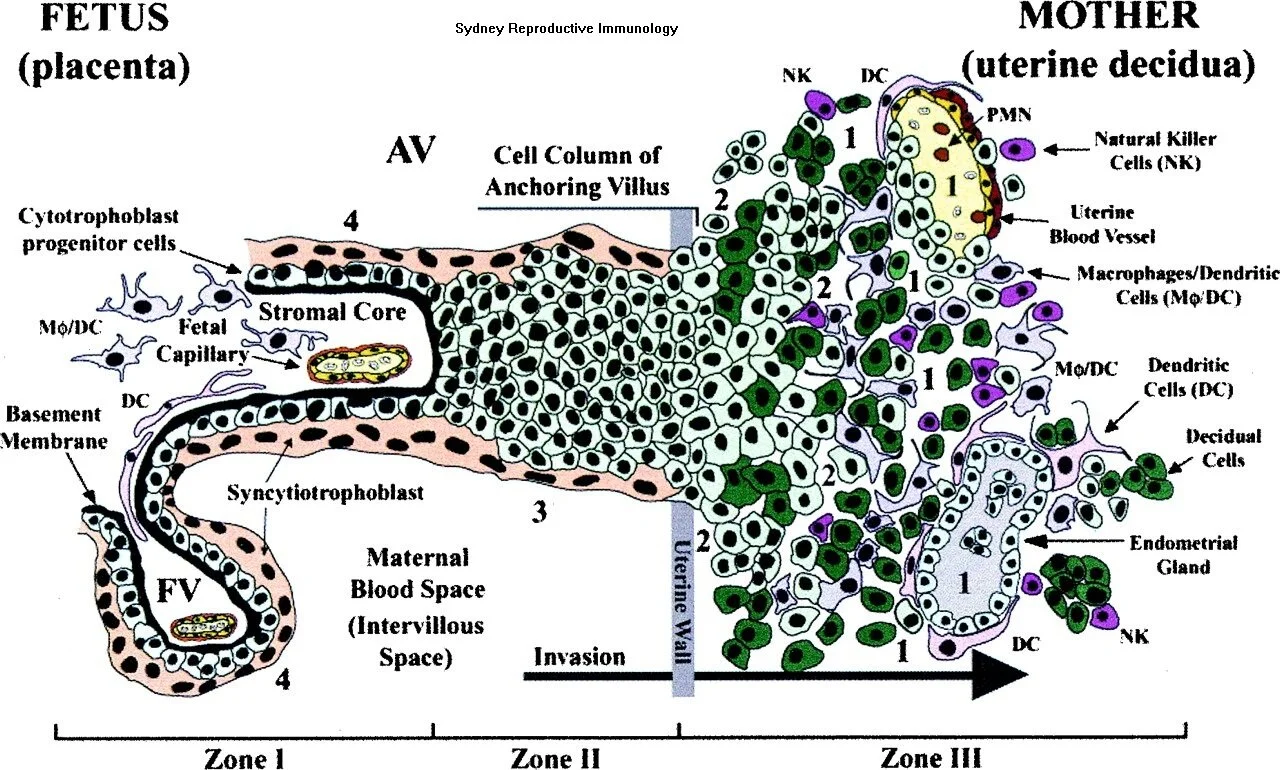How excessive inflammation may impact successful implantation and the placenta (and what we can do to help)
At the interface between your body and that of your fetus, there are many things your body does to make sure everything goes smoothly. When everything is working well, this results in successful implantation and pregnancy.
In some cases, however, chemical imbalances can develop which result in the body incorrectly thinking the fetus shouldn't be in your body. When this happens the immune system attacks the developing fetus, resulting in excessive inflammation of the area. Inflammation can be uncomfortable anywhere on your body, but in this case it's much more serious and may result in an unsuccessful implantation and loss of the potential pregnancy or damage to the placenta and complications.
These chemicals, known as cytokines, are produced by various immune system cells. At Sydney Reproductive Immunology we can test for inflammatory and anti-inflammatory cells, and if they're out of balance, provide appropriate treatments. We aim at getting a healthy balance of these cells and subsequently cytokines , By addressing this potential imbalance we aim to address unsuccessful implantation and placentation.


